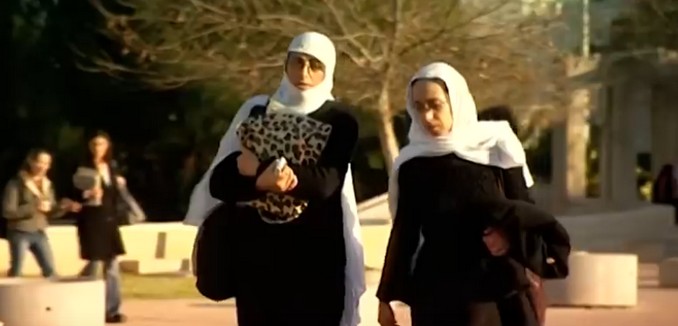The number of Arab students attending Israeli universities has increased by 78.5% over the past seven years, according to new research by Israel’s Council for Higher Education (CHE), The Times of Israel reported on Thursday.
In total, the number of Arab students in Israeli universities grew from 26,000 in 2010 to 47,000 in 2017.
Arab students accounted for 16.1% of undergraduate students in Israeli universities, up from 10.2 % in 2010, the survey revealed. In graduate programs, the percentage of Arab students since 2010 has doubled from 6.2% to 13%. In postgraduate programs, 60% more Arab students are enrolled, up from 3.9% to 6.3%.
The Israeli government has invested $88 million on the program in 2012-2016, which seeks to better integrate the Arab Israeli community into higher education. Because of the success of the initiative, the government has decided to extend its financial support to 2022, with a total budget of $294 million.
The survey further showed that there has been an increase of Arab students in subjects in which their representation has been low in the past. This includes courses in engineering (66%), mathematics and hard sciences (44%), humanities (66%) and business administration (87%).
The Bedouin community, however, remains severely underrepresented in Israeli academia.
Prof. Yaffa Zilbershats, chairperson of the CHE’s planning and budgeting committee, said in statement: “The Planning and Budget committee defined the multi-year plan for accessibility and narrowing of the gaps in the higher education system as a central goal.”
She added: “Academia is key for integration into society and industry. Therefore, in the next few years we will invest plenty of resources, including professional and individual support, in order to pave the way to academia for students, the Bedouin in particular.”
Only 850 Bedouin students were enrolled in Israeli institutes of higher education in 2016, according to the CHE. The council has therefore developed a five-year plan to increase Bedouin enrollment rates by 75% with a budget of $294 million.
A study released last month showed that Israeli-Arabs had the highest life expectancy among 21 Islamic or Arab countries, even higher than that of wealthy Gulf States, such as Qatar and Bahrain.
In September 2016, the Israeli government agreed to allocate 1.41 billion shekels ($374 million) toward building public housing for Israeli Arabs and to lift restrictions from construction on private land, with the goal of facilitating the construction of 30,000 apartments on both public and private land in Arab localities.
An October 2014 report by economists Robert Cherry and Robert Lerman highlighted some of the efforts undertaken by the Netanyahu government to “[prioritize] economic development in Arab towns.” Among the initiatives they mentioned were the establishment of employment offices and industrial parks in Arab towns. In addition, Cherry and Lerman wrote, “the Israeli government developed a five-year plan for Arab education and established a special unit in the prime minister’s office to promote economic development in the Arab community.”
[Photo: Technion / YouTube]




